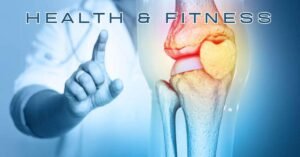People often encounter alarming Back Pain After Sneezing. The physical reaction known as sneezing, which starts as a standard instinct, causes discomfort and stiffness while delivering sharp pain in the upper and lower back region. The apparent basic act of sneezing triggers people to wonder about the underlying basis for this phenomenon. Is it a serious issue? And how can you manage it? The article investigates both the origin of sudden Back Pain After Sneezing alongside strategies to prevent and handle this condition.
Understanding Sneezing and Back Pain
We must first examine sneezing and back pain separately since understanding these concepts independently remains essential for exploring sneezing-related back pain causes. Medically called sternutation, the human body utilizes sneezing as an automatic reflex that removes irritants from the nose and throat passages. Sneezing functions as an automatic physical action that develops due to allergens as well as colds, dust, and intense emotional states. A sneeze requires quick pressurized breathing from the lungs, thereby leading to muscular contractions, which affect the chest as well as the abdominal area and diaphragm.
Many people experience back pain, which reflects both mild and serious discomfort. The triggering factors for back pain include various issues, including strained muscles and poor posture, alongside both physical reasons, such as excessive strain or medical diseases, which include degenerative disorders or herniated disc conditions. Back pain exists as either short-term acute or long-lasting chronic.
A sneeze causes powerfully contracting muscles, which may lead to instant pain throughout your back region. Sneezing causes back pain by requiring fast muscle movements and resulting tension between body muscles, including those in the back areas.
Causes of Sudden Back Pain After Sneezing
Multiple elements serve as causes for the development of sudden Back Pain After Sneezing occurs. Sneezing usually leads to brief discomfort that requires us to identify the fundamental factors triggering these symptoms.

- Muscle Strain: Back Pain After Sneezing often develops from muscle strain, which represents a frequent cause in such situations. Muscle strains in the back result from sneezing because the fast muscle movements potentially harm these back muscles, particularly when muscles are either tight or weakened. People whose back posture is weak due to a sedentary life or past injuries or who avoid regular physical activity are more likely to suffer back muscle strain.
- Herniated Disc: A herniated disc transpires when the protective discs between spine vertebrae either break or shift away from their normal position. Sneezing with enough force places stress on spinal discs, which intensifies the condition to produce instant onset back pain in patients. A herniated disc manifests with pain that extends from the back to the leg (sciatica) together with pain localized to the back area.
- Spinal Stenosis: Spinal stenosis develops when the spinal canal becomes narrow; thus, it produces pressure on both the spinal cord and nerves. Additional back pressure caused by sneezing might generate immediate back pain as well as discomfort that spreads toward the legs. Spinal stenosis becomes more widespread among senior citizens because of spinal age-related modifications.
- Facet Joint Dysfunction: The facet joints exist between each vertebra because they function as small synovial joints known as facet joints. The spine moves smoothly between each adjacent joint. Pain in the back becomes more likely after sneezing when the facet joints become inflamed or irritated. The pressure on the cartilage-based joints intensifies after sneezing due to the resulting motion, thus resulting in immediate pain.
- Sciatica: Sciatica develops when compression or irritation affects the sciatic nerve, starting from the lower back before ending at the legs. A sneezing session can worsen sciatic nerve compression, thus resulting in intense back pain that extends through one or both legs.
- Weak Core Muscles: Core muscles that have a weak state are essential for providing spinal stability. These muscles exist in the pelvic region alongside the abdomen and lower back. Weakness or underdevelopment of core back muscles during sneezing produces a strain that might cause pain or discomfort. Core muscle strength enhances protection against back discomfort when sneezing occurs.
- Poor Posture: People whose posture is weak, especially those who slouch or hunch their shoulders, are more likely to suffer back pain immediately following a sneeze. Sneezing activates enough pressure on the spine, which could generate pain when combined with an improper posture.
- Underlying Medical Conditions: The occurrence of severe back pain following sneezing more frequently happens to people who have either osteoporosis or ankylosing spondylitis as medical conditions. The bone condition osteoporosis makes bones break easily, but the spine-based joint disease ankylosing spondylitis develops in patients. Sudden body movements during sneezing become hazardous for backs, which are weakened by these two medical conditions.

Prevention of Back Pain After Sneezing
Several methods exist to minimize the chance of getting Back Pain After Sneezing, although prevention remains uncertain in some cases.
- Practice Good Posture: The proper position of your body remains vital for maintaining healthy back conditions. Your spinal alignment should remain steady during sitting and standing by keeping your shoulders natural and rear position while preventing yourself from slouching. A well-supported stance produces health benefits that minimize strain upon back muscles.
- Strengthen Your Core Muscles: Core strengthening practice, together with exercise, promotes better stability for spinal support muscles. Restoring posture and minimizing risks of injuries emerge from regular practice of Pilates classes, yoga sessions, and strength-building exercise sessions.
- Stretch Regularly: You should stretch your core, back, and leg muscles along with stretching your entire body since this improves flexibility and helps lower tension throughout your body—the knowledge of having tight muscles positioned you better to avoid strain from unexpected sneezes.
- Lift Properly: You should lift carefully, along with avoiding unproper bending over tasks since both actions stress your back. To lift objects properly, bend your knees instead of your waist before using leg strength rather than back muscles.
- Take Breaks: People who must remain seated for long hours should take periodic rest breaks, which include walking and stretching to reduce muscle tension. The strategies help reduce muscle stiffness along with stopping potential strains from occurring.
Treatment for Sudden Back Pain After Sneezing
Several treatments exist to lessen sudden back Pain After Sneezing:
- Rest and Ice: This treatment method comprises two steps: a patient should first rest their muscles and then use a cold compress as a method to decrease both inflammation and pain intensity. The treatment includes 15-20 minute ice applications, which can be repeated throughout the day.
- Heat Therapy: Appearing heat to your back muscle area allows you to both relax tense muscles and obtain better circulation after initial inflammation settles. Two effective methods of pain relief include warm baths together with heating pads.
- Over-the-Counter Pain Relief: People who experience pain after sneezing should utilize ibuprofen or acetaminophen alongside other Nonsteroidal anti-inflammatory drugs (NSAIDs) purchased over the counter for relief. Follow the guidelines provided on medication doses when taking these drugs.
- Physical Therapy: Seek physical therapy assistance to receive exercise methods that target vulnerable parts and tension locations in your back. Seeking physical therapy allows patients to get help with posture improvements and learn techniques that prevent back issues in the future.
- Consult a Healthcare Professional: Nobody should ignore chronic or intense Back Pain After Sneezing since you need to seek medical guidance from an expert. You should consult a doctor or chiropractor who can identify your condition and will determine the underlying pain cause and also provide the right treatment options or additional tests.

Conclusion
Sneezing-related sudden back pain should not be dismissed because these episodes can signal serious medical conditions requiring medical care. Many individuals face back discomfort due to muscle strain or herniation between vertebrae or postural problems and can successfully treat these symptoms with rest along with exercise and medical help when needed. Usual pain relief measures do not suffice for chronic or extreme back discomfort, which urges you to seek medical help from professionals for diagnosis and correct treatment.
Taking precautions to fortify your back and maintain proper posture together with regular exercise decreases your chances of getting Back Pain After Sneezing.








